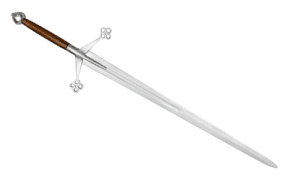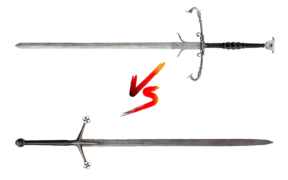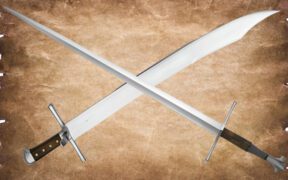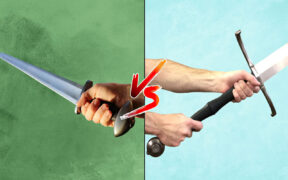Bastard Sword vs Claymore: Real History vs Gaming Lore
NO AI USED This Article has been written and edited by our team with no help of the AI
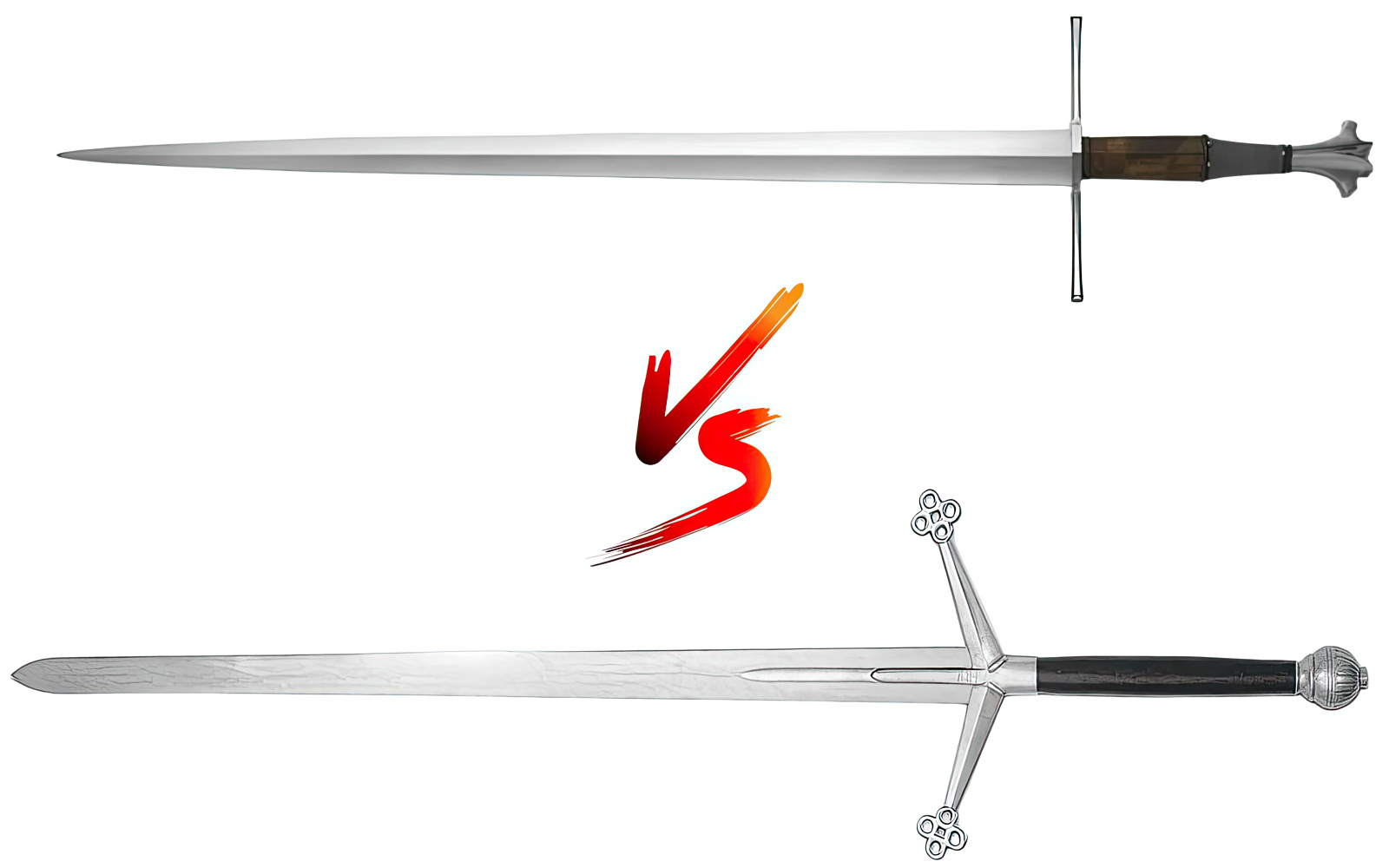
Both the bastard sword and claymore are famous European swords that are popular today in anime and video games. The bastard sword’s distinctive name adds to its allure, while the claymore is known for its sheer size and powerful slashes.
This article compares the bastard sword and claymore by examining the differences behind their historical and media representations, designs, combat styles, and even discusses how they fare against each other in battle.
Design Differences and Characteristics
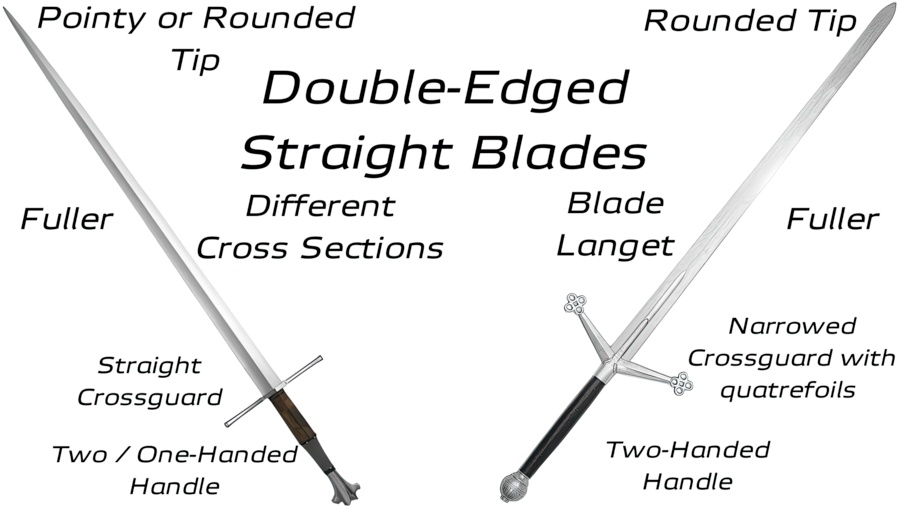
| Bastard Sword | Claymore | |
|---|---|---|
| Size | 43.3 – 53.1 inches (110 – 135 cm) | 51 to 71 inches (130 to 180 cm) |
| Weight | 2.42 – 3.3 lbs (1.2 to 1.5 kg) | 4 to 7.7 lbs (1.8 to 3.5 kg) |
The bastard sword is also known as a hand-and-a-half sword. Since it can be wielded with one or two hands, it did not fit into either the categories of single- or two-handed sword. Its name “bastard” comes from the French term épée bâtarde which denotes something of uncertain or mixed origin.
On the other hand, the name “claymore” comes from the Scottish claidheamh mòr, meaning “great sword.” This term historically refers to various Scottish blades, such as the basket-hilted broadsword. Today, claymore refers to the large two-handed swords used in Scotland during the 16th century Renaissance.
Blade
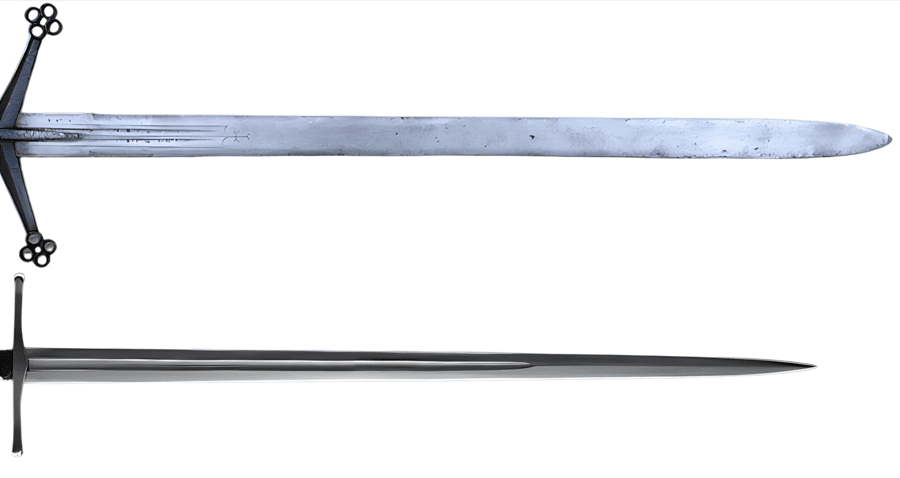
Both the bastard sword and claymore have straight, double-edged blades made of high-carbon steel, giving them a balance of flexibility and strength. They can also have a fuller which helps decrease the overall weight of the sword.
In terms of design, bastard swords have more blade variations but are generally slimmer than the claymore and can come with a reinforcing mid-rib. They have a more pronounced taper that ends in a sharp point for thrusting.
Meanwhile, Claymores have an unsharpened ricasso near the hilt and a more rounded tip.
Hilt
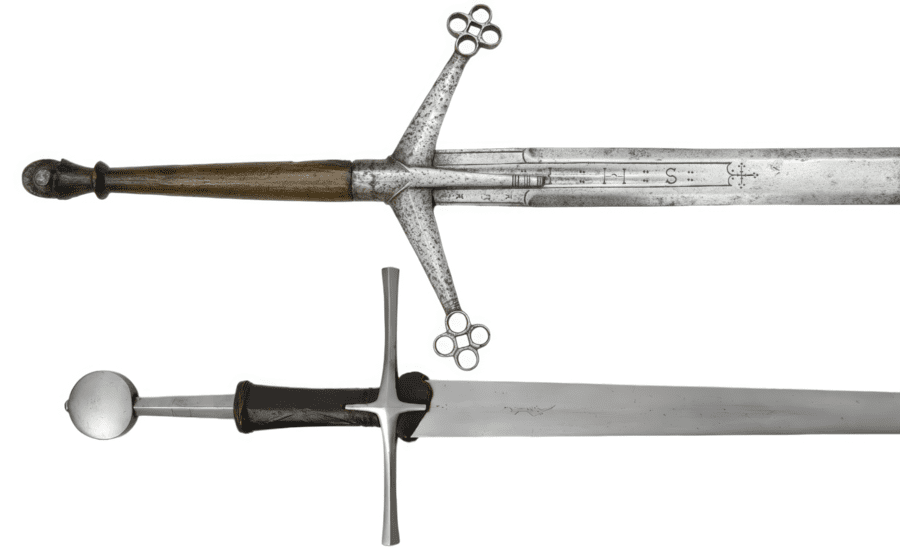
Bastard swords have a handle that can accommodate one or two hands, usually broad in the middle or narrow in the lower half. These hands are generally made of wood wrapped with leather and feature a straight crossguard.
In comparison, the Claymore’s hilt is designed for two-handed use and can vary in size and type. It has a massive crossguard with traditional quatrefoils and may include a clam, langet, or side ring for additional protection.
Both swords have a pommel to counterbalance the blade’s weight.
Scabbard & Carrying
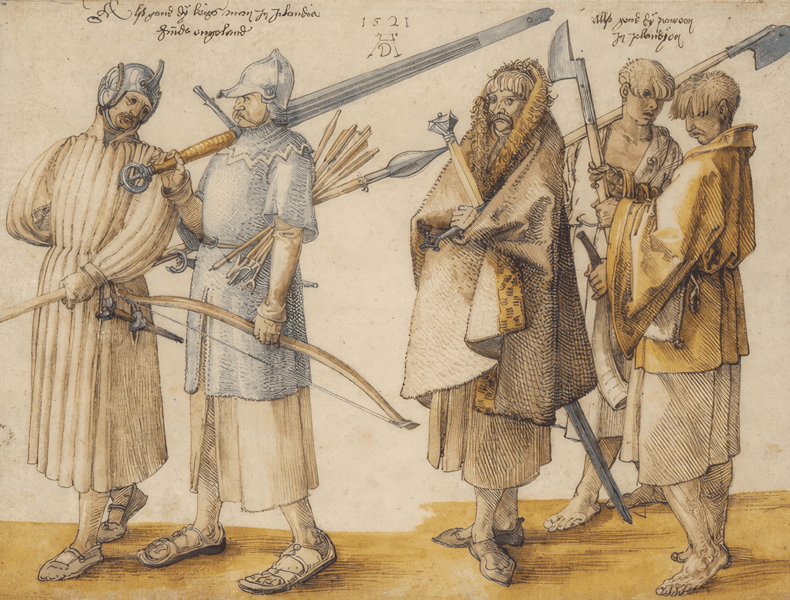
The bastard sword’s size made it a versatile and adaptable weapon for various situations. It was typically carried in a leather-wrapped scabbard, hung from the user’s left side.
Comparatively, the Claymore’s large size meant that it was usually carried over the shoulder, remaining unsheathed before battle as carrying such a big sword in a traditional scabbard would be impractical.
Modern Media and Real Trait Differences
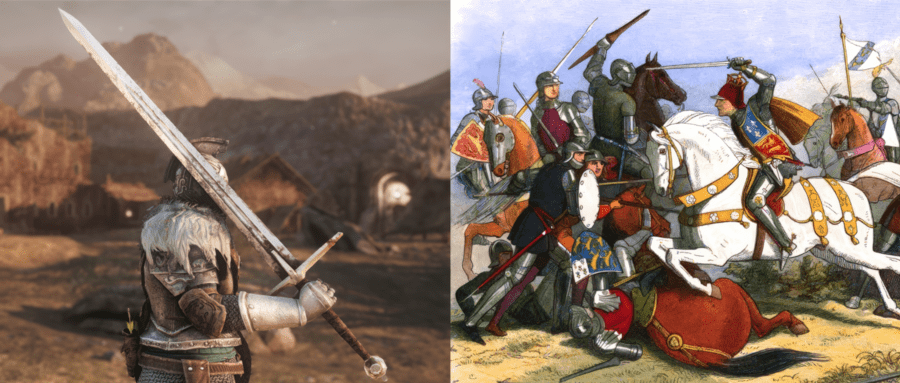
In modern media, the bastard sword was often portrayed as being ideal for lightly armored opponents due to its versatility. However, historically, it was favored for its ability to pierce armor.
The Claymore is typically depicted today as an all-powerful weapon capable of slashing through almost anything, albeit at a slower speed due to its size and weight. Historically, it is only slightly heavier than the bastard sword and was used primarily when heavy plate armor was becoming less common.
Practical Differences in Combat
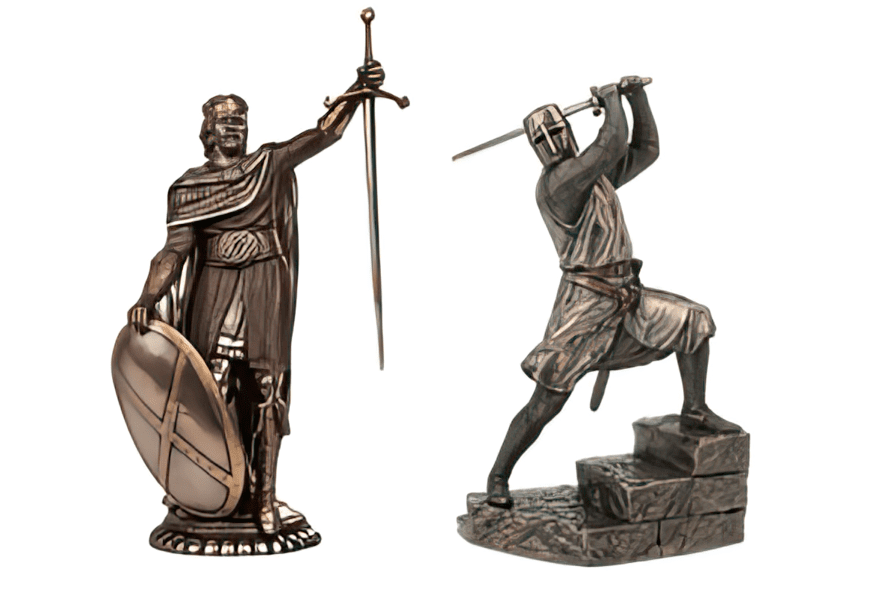
When comparing the bastard sword and claymore, both are suited for cutting attacks due to their broad blades as they are similar in terms of width and length. However, the bastard sword’s versatility allows it to excel in various scenarios while the Claymore’s greater length gives it a slight reach advantage.
Claymore
The Claymore was indeed used for powerful slashing attacks which are often compared to bashing due to the force behind each strike, making it an effective weapon against unarmored or lightly armored targets.
This is also the reason why it is excellent for breaking through enemy formations, taking down enemy cavalry, engaging in guerilla fighting warfare, and individualized combat.
Bastard Sword
Due to its design, bastard swords are highly effective against armored opponents, especially when used with half-swording techniques. This allows its wielder to precisely target gaps in armor. Their lighter weight allows it to be more versatile, suitable on foot or horseback, with or without a shield.
John Clements, a leading authority on modern HEMA training and practice says, “the unique bastard-sword half-grip is both versatile and practical”.
History of the Bastard Sword / Claymore

The bastard sword evolved from the Arming Sword which was widely used during the Crusades. It was developed during the 13th century when improvements in mail and plate armor were made.
Over time, the bastard sword grew in length and evolved into the longsword in the late 13th and early 14th centuries. During the 16th century, the longsword evolved into larger two-handed swords, known as greatswords used against pike formations. One of the most popular variants of the greatsword is the Scottish version, the Claymore.
Today, the Scottish Claymore is a symbol of Scotland, representing their cultural identity and martial history.
